NFTs & How They Can Be Beneficial For Your Business
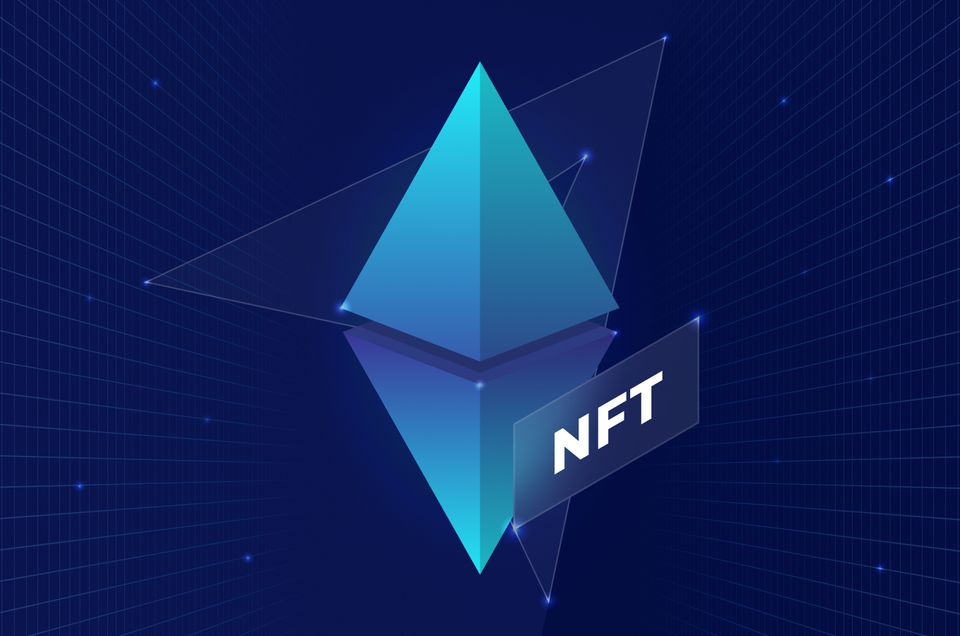
What are NFTs?
An NFT is a digital asset (like artwork, music, videos, or in-game purchases such as unique avatars) bought and sold online using cryptocurrency. NFTs became an increasingly popular investment in 2021 as cryptocurrency investing exploded.
NFT stands for «non-fungible token»; when something is fungible, such as a $1 bill, it is interchangeable with any other dollar note. A non-fungible token (NFT) cannot be traded for another. This essentially means that each NFT is a unique thing.
In the real world, you'd have a one-of-a-kind collectible asset, such as a work of art, for which you'd have a certificate of ownership attesting to its authenticity. Due to blockchain technology, ownership certificates are not required with the NFT.
In addition to previous characteristics, NFTs have the following:
- Digital permanence. They last for as long as the blockchain on which they are built does.
- Proven ownership. It can also be transferred if the NFT is designed for resale.
- It cannot be faked. Anyone may check the blockchain for legitimacy.
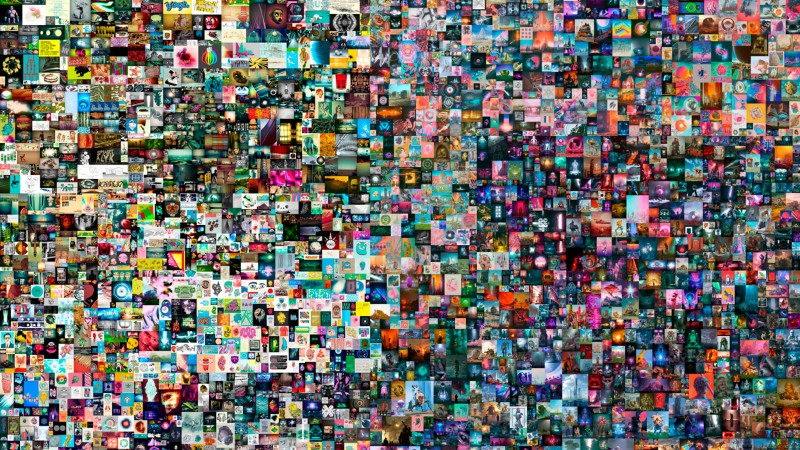
NFTs can be pretty expensive. Some individual NFTs have fetched over $50 million each. For safety, the digital assets are then stored in digital wallets, either online or offline.
According to trading data, the Bored Ape Yacht Club, a collection of NFTs, sold their digital collectibles for $1.4 billion on the OpenSea marketplace, equivalent to 466,000 ETH.
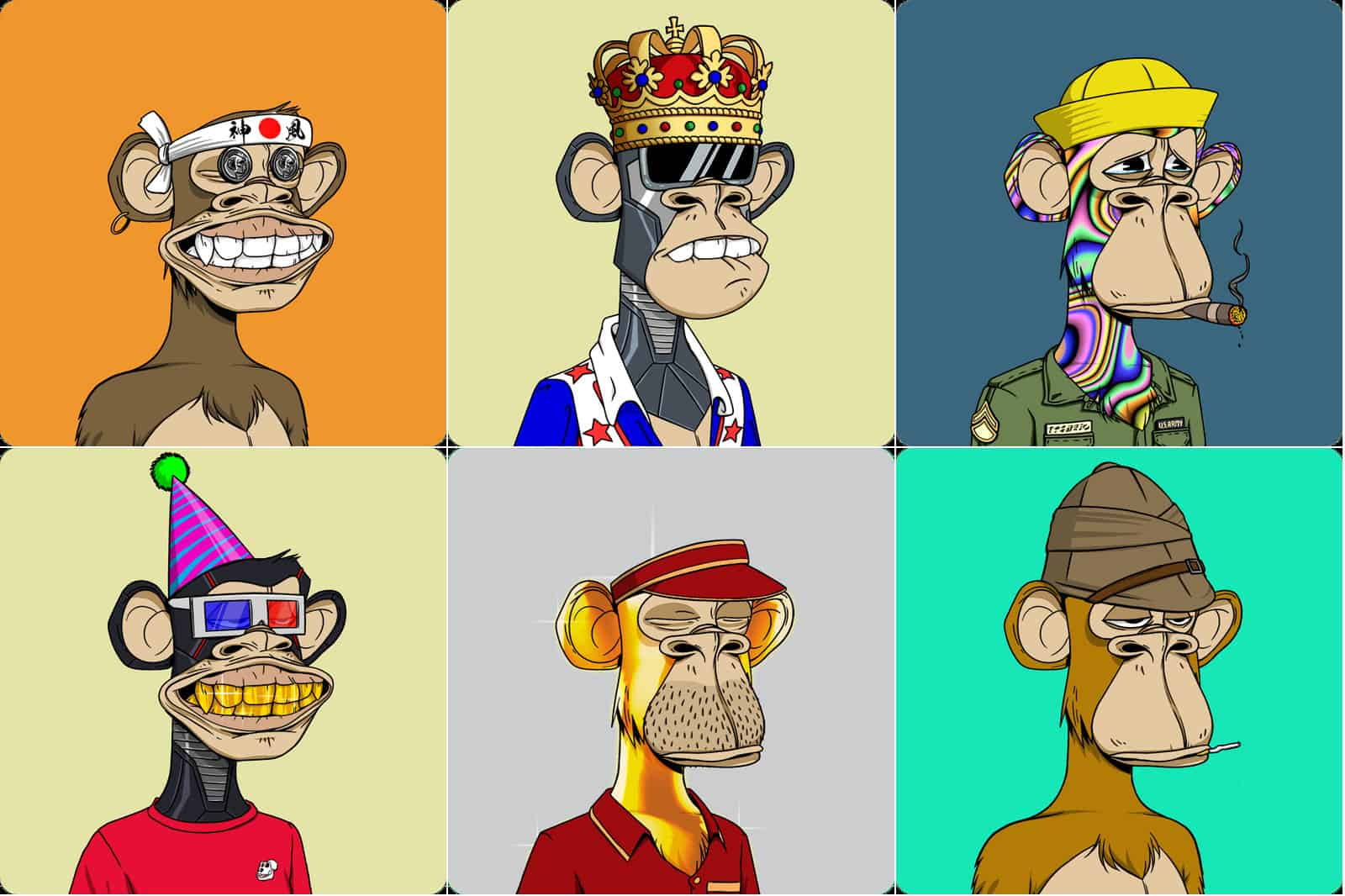
From Q1-Q2 of 2021, nonfungible.com reports that the overall trading volume of NFT increased from $500 million to $700 million. These figures, according to DappRadar, a DeFi dapp store, far exceed those of the prior year.
Aforesaid indicates a growing market with prospects for start-ups and small enterprises that pay attention.
How do NFTs work?
NFTs are kept on a blockchain, a decentralized public ledger for recording transactions. That technology makes cryptocurrencies possible.
The term "blockchain", as the name implies, refers to a sequence of blocks or sets of transactions chained together and distributed across users.
Blockchain functions as an unchangeable record of transactions that does not require an external authority to verify the data's integrity or authenticity. Although most transactions are financial, the blocks can store any type of data, for example, NFTs.
The NFT consists of digital objects representing a variety of things, including:
- Art
- GIFs
- Skins for video games and virtual avatars
- Collectibles
- Memes
- Music
- Coupons
- ID files
- Health records
- Even tweets and more
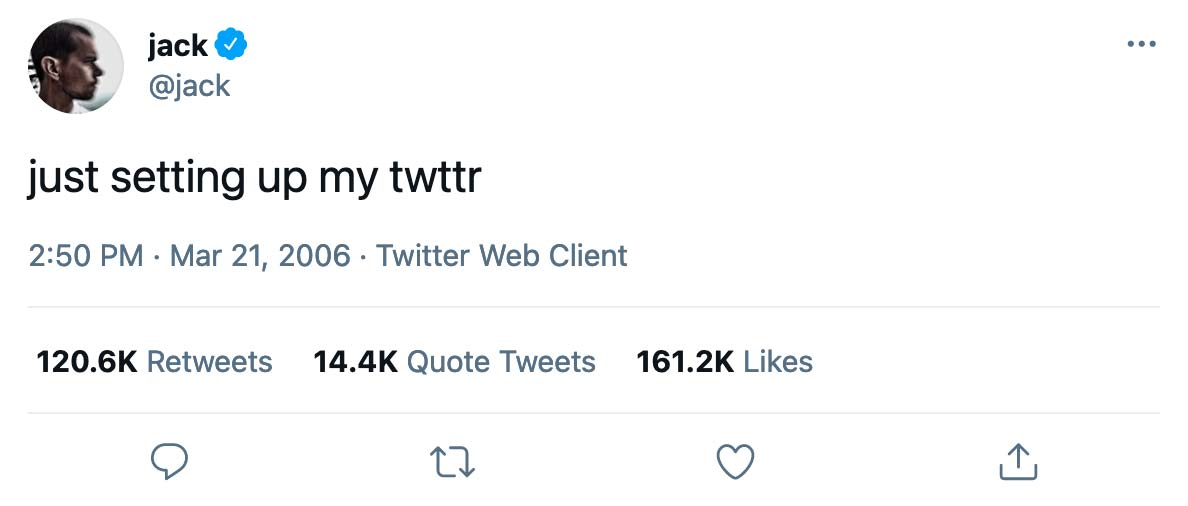
Online markets like NFTcatcher.io are used for marketing and distributing NFTs. To buy an NFT and create an account on the marketplace, you must first have cryptocurrency. Assets are available for investors to browse before making a decision.
To begin investing in NFTs, you must first construct a digital wallet and conduct market research. There are plenty of NFTs to buy and sell. Only a digital wallet and a sharp eye for potentially valuable NFTs are required.
Treat NFTs the same way you would any other investment: do your homework, grasp the risks, and continue with caution if you decide to go ahead with it.
Thanks to this technology, artists, companies, and celebrities can now monetize their assets despite risks. Creators have an opportunity to build a portfolio of digital assets to offer to a new generation of investors and collectors, and celebrities are creating assets utilizing their famous brand persona.
NFTs have initially been designed to store mostly art. However, these tokens can now be used for more than just preserving digital assets. They're suitable for businesses, corporations, and even startups. Let's examine some of the benefits of NFTs for companies.
NFTs’ benefits for business
Non-fungible tokens provide vast opportunities for enterprises to generate new revenue streams. Simultaneously, they have become an appealing source of investment, enabling the funding of new ventures.
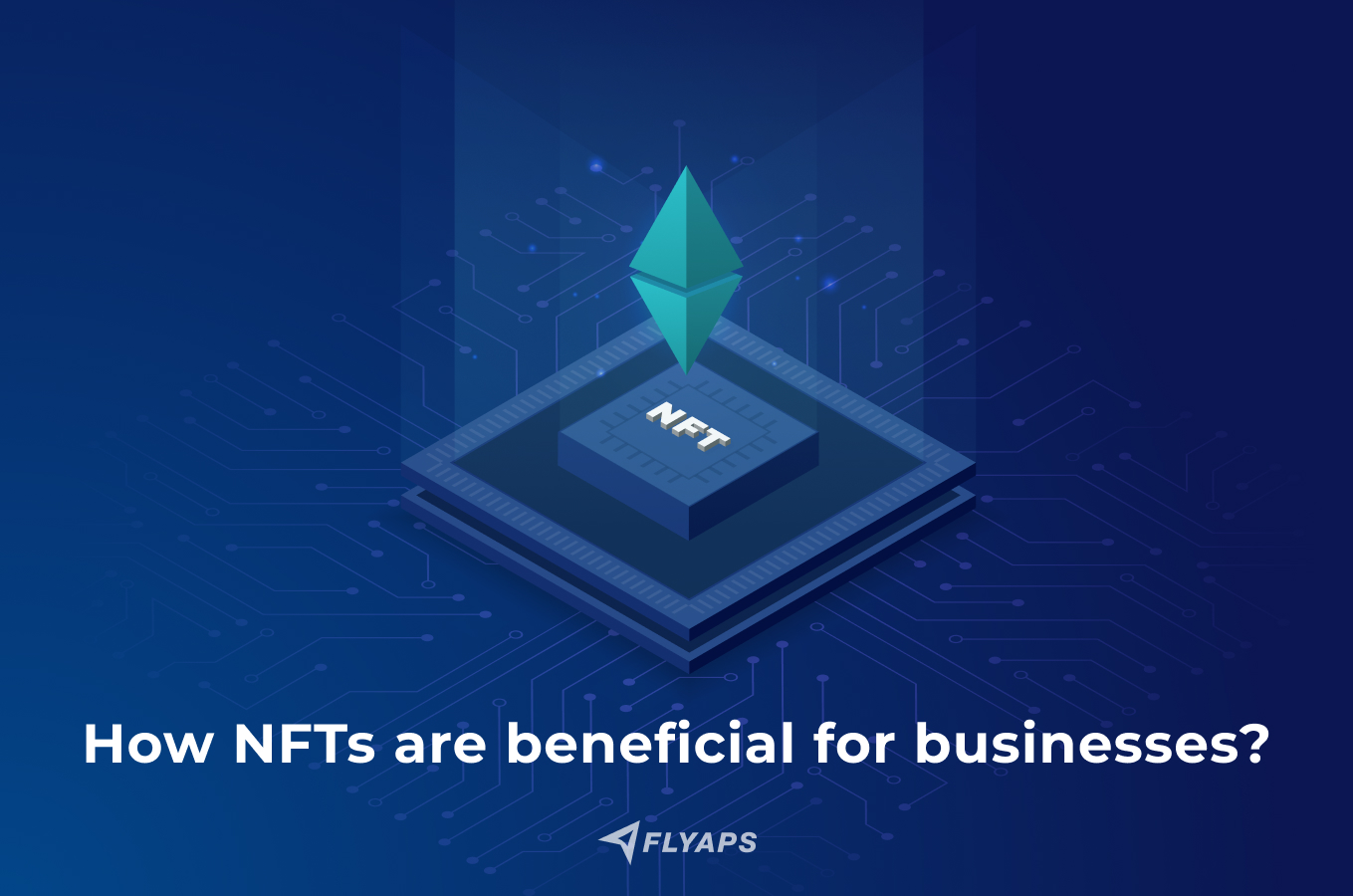
It is an excellent time for companies, particularly those with media and entertainment assets, to start thinking about their own NFT strategy and how to use it to gain a durable competitive advantage effectively. Here are some ways how NFTs can benefit businesses:
Investment Case
First and foremost, NFT has the potential of a profitable investment. Corporations and startups can further use this great scope of working with NFT for investment purposes.
In 2021, Visa bought an NFT for $150,000, and Adidas paid another $156,000 for a digital piece of art. Companies use NFTs as a new revenue stream and engagement tool for their customers.
Furthermore, according to NFT investor Andrew Lokenauth, brands invest in NFTs because they believe the digital world is the future.
To maximize your NFT investment, you must monitor trends and the market on a daily basis. If you want to maximize your return on investment, you'll want to sell at the proper time. Given how quickly NFTs fluctuate in value, it's a good idea to set aside time each day to check on the value in order to maximize your profit.
Making Decentralized Application
Decentralized applications, or dApps, run on a peer-to-peer blockchain, unlike typical apps regulated by a centralized controlling authority.
Before creating a dApp, you must choose a blockchain, decide if you want to go beyond transactions and determine the solution's architecture, among other things.
Experts believe the main job is validating the proof of value using the cryptographic capabilities of the blockchain platform.
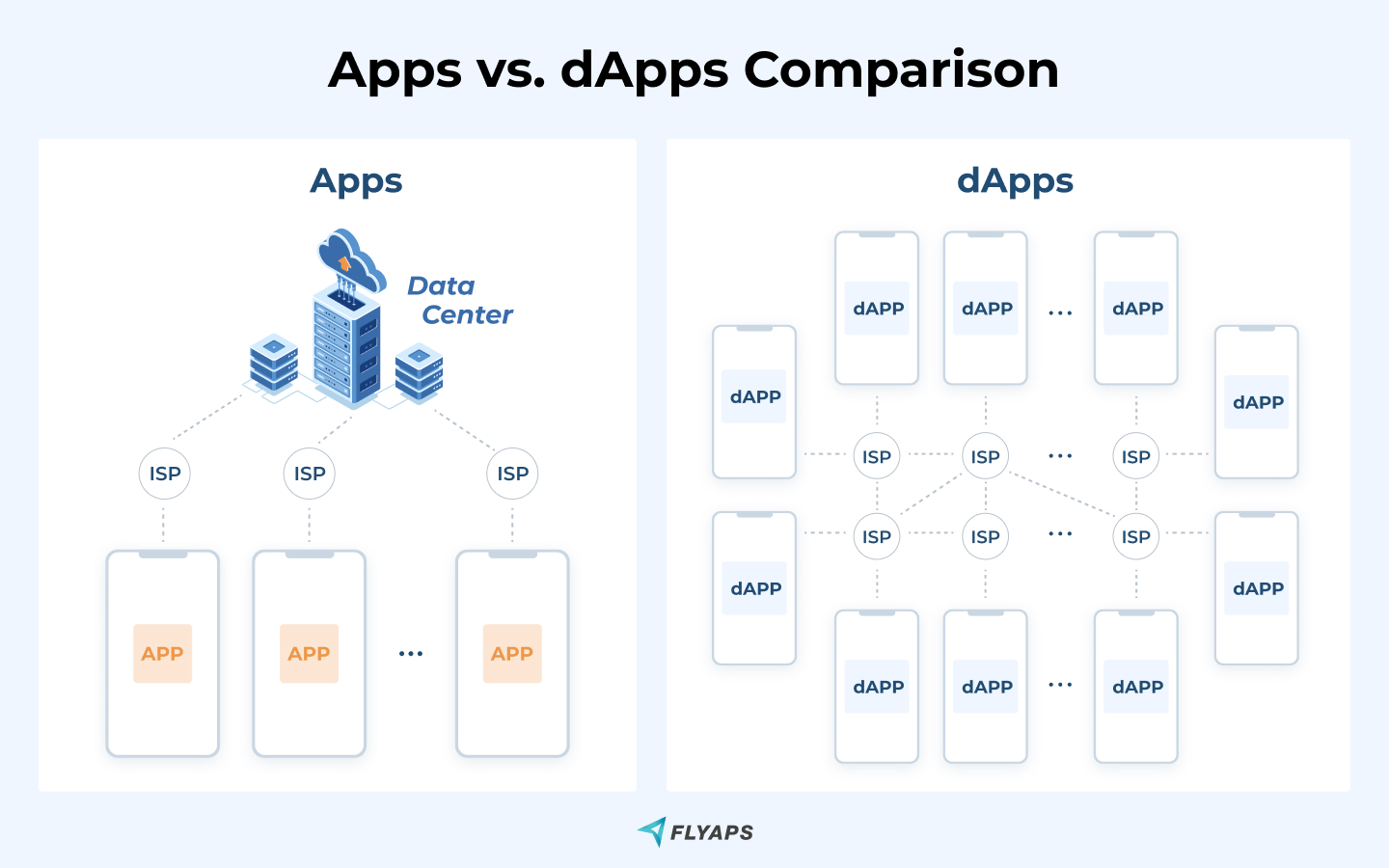
The transparency, autonomy, and trustworthiness of decentralized apps have now been revealed to users and investors.
At this time, a decentralized application is in high demand – thus a fantastic opportunity for corporations and startups to seize. The $10.5 billion dApps market in 2019 is predicted to grow to $368 billion by 2027.
Real World Commerce
So far, NFTs have mainly been used to create and distribute digital products. However, NFTs can be linked to tangible items in the same manner that barcodes are used as identifiers.
E-commerce companies may find it challenging to provide authentic goods for trade. NFT can help successfully with the problem of return fraud which can eat into a brand's profit margin. The NFT technology guarantees traceability, authenticity, and transparency of the transaction.
Most fashion goods we purchase will be tokenized on a blockchain and uniquely identified in the future. They'll also be available in digital formats that interface with augmented reality and virtual worlds.
User-Generating Gaming Platform
The gaming industry can use NFT quite successfully. Thanks to it, gamers will be able to trade virtual assets while playing games. с and many businesses are actively pursuing it.
The Sandbox, for example, is an NFT-powered game based on Ethereum. Using this platform, gamers can monetize their gaming assets and experiences. Aside from that, the platform might allow gamers to use NFT to create their own games.
DappRadar reports that gaming-related NFTs earned $4.8 billion in revenue in 2021. This year, only in January did blockchain games raise about $1 billion.
More non-blockchain-focused firms will be motivated to experiment with NFTs as a result of the potential for profit in the gaming sector, most likely by creating collaborations with third-party blockchain initiatives that have the technical competence needed to bring their vision to life. Simultaneously, the widespread popularity of gaming dApps will almost certainly contribute to additional NFT infrastructure upgrades and the creation of new solutions that enable general use.
A Digital Customer Loyalty Program
By participating in loyalty programs, customers can be rewarded for their loyalty, which encourages them to do business with you again. Companies can use membership programs to give members unique access to information or discounts.
Some businesses may consider using a digital NFT loyalty card. Once customers have signed up, they can download it to their phone. Each time they visit your business, they scan the loyalty NFT code to earn loyalty points. You can push prizes, discounts, or blockchain tokens to be used in stores when specified thresholds are met.
Conclusion
NFTs are blockchain tokens with unique identification numbers. Typically, these tokens are tied to an item. Regardless of the number of copies available, anyone who has the item with the token is considered the item's owner.
As for investing, NFTs have the potential to make you millions. Whether you want to buy and sell them or create your own NFTs, you can get them for a low price and then sell them higher if demand increases. However, some NFTs may not rise in value if they are in low need, so don't expect to make money right away. As a result, it's critical to do your research and learn how to invest in NFTs properly to make the maximum money.
NFT's full potential has yet to be realized, allowing for development of many more novel technologies and applications. Finance startups and small businesses who want to take advantage of this opportunity should study and evaluate industry trends and/or offer their services as consultants to investors.

